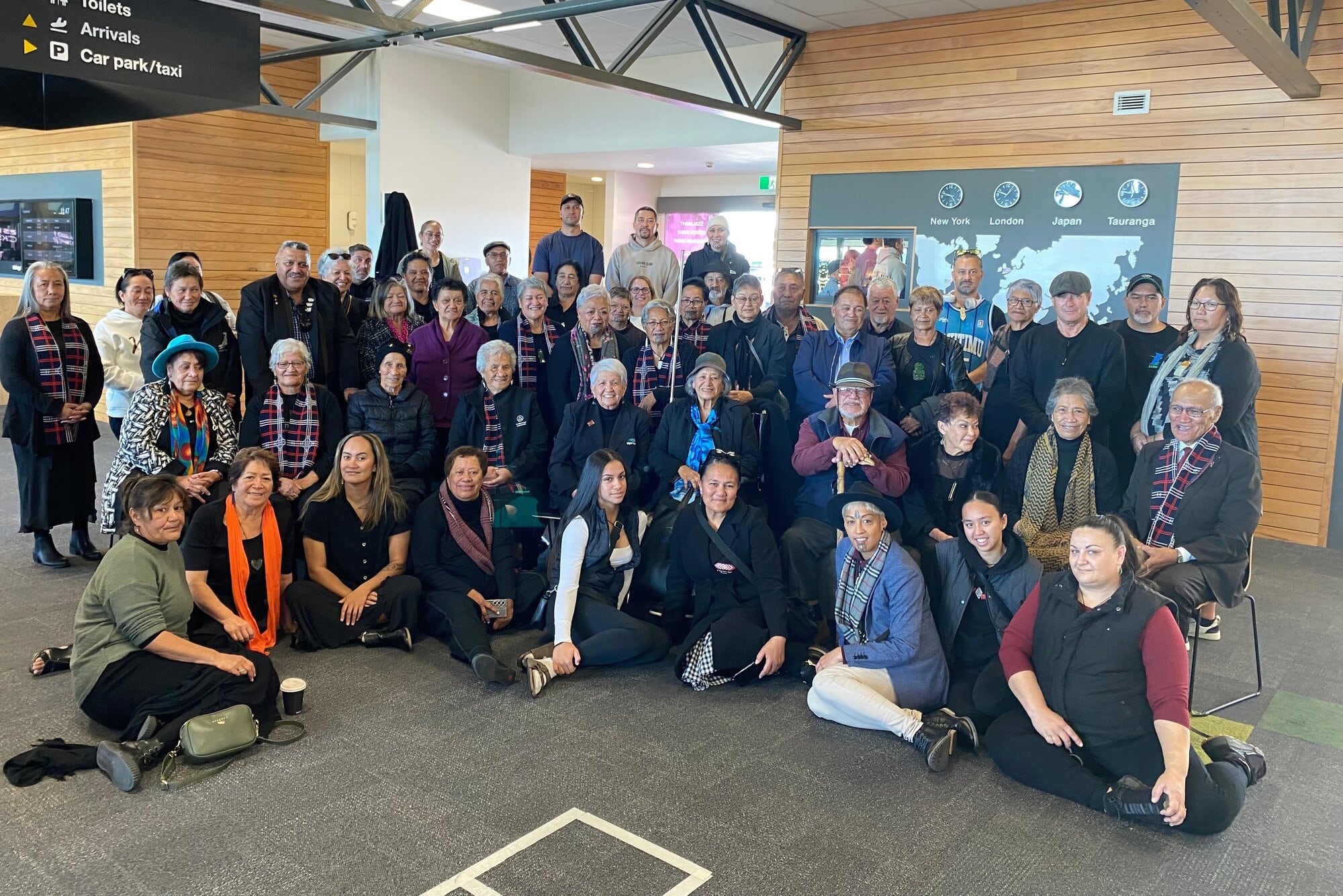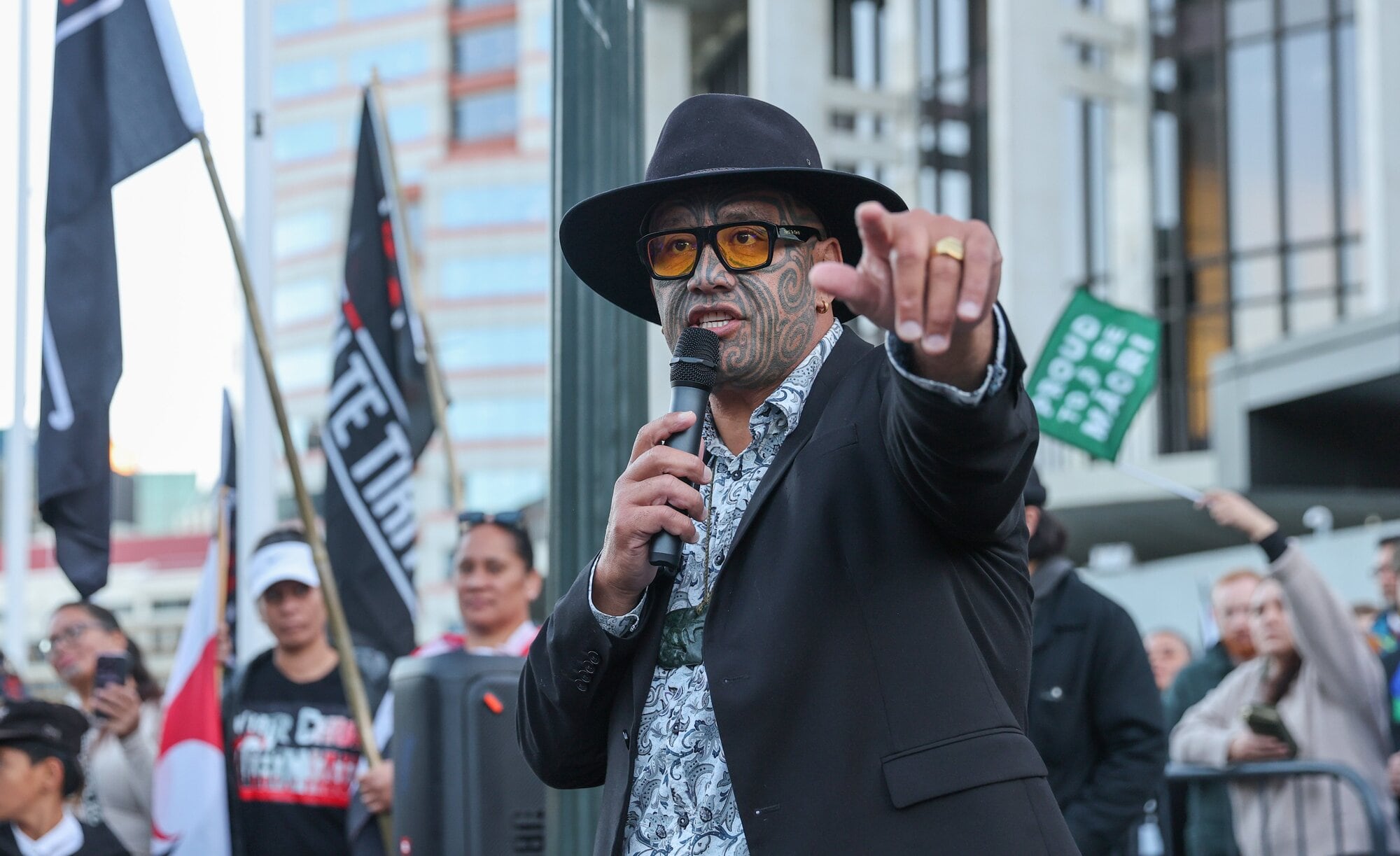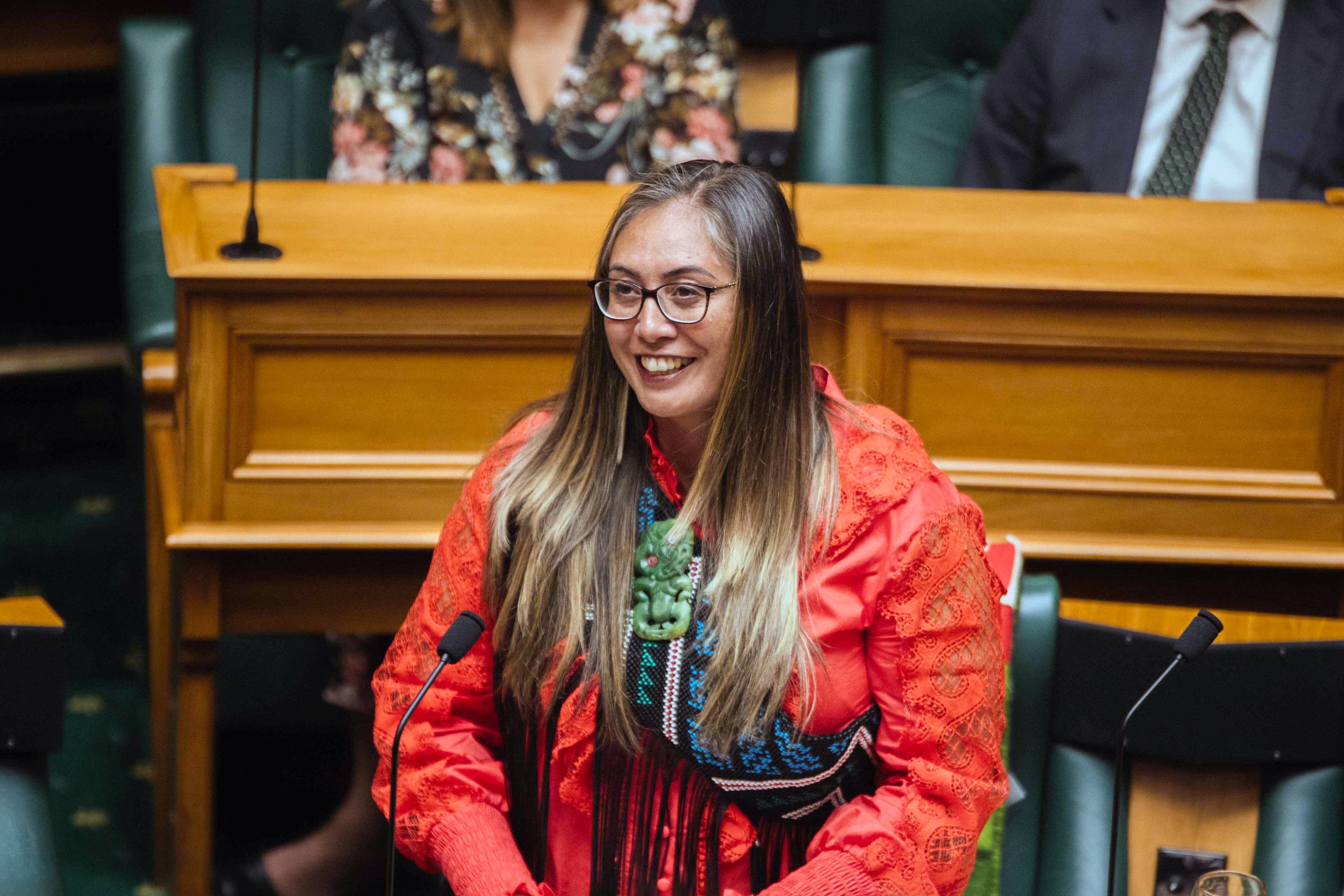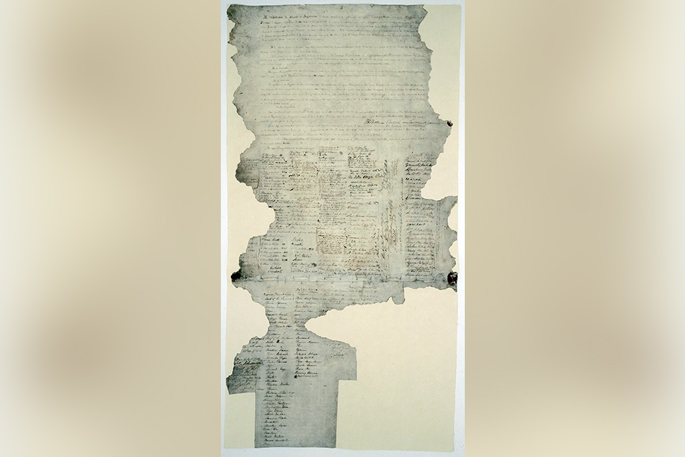Despite unanimous support for the Ngāti Ranginui Treaty Settlement Bill, Minister for Treaty of Waitangi Negotiations Paul Goldsmith has warned that future claims could face pressure from the Greens and Te Pāti Māori.
Passed in Parliament on May 15, the bill delivers a full and final settlement, including $38 million in redress and a first right of refusal for the Bay of Plenty based iwi.
In an interview with SunLive, Goldsmith said the Greens and Te Pāti Māori could scrutinise future settlements.
“Frankly, it is a real risk to the whole thing [Treaty process],” he said.
“Thankfully, Labour is still recognising the importance.”

Minister for Treaty of Waitangi Negotiations.
Goldsmith said he recognised that the Crown only returned a fraction of what Ngāti Ranginui lost historically.
“You’re also asking today’s people to make settlements with money that could be spent on healthcare.
“We have got to maintain public support for that.”

Group of 60 flying to Wellington for the third reading of the settlement bill today.
Goldsmith said the bill included a $38m commercial and financial redress that would allow Ngāti Ranginui to build for the future.
The bill’s third reading marked the end of decades-long processes.
However, much of the groundwork had already been completed by former Ministers for Treaty of Waitangi Negotiations Chris Finlayson and Andrew Little before Goldsmith took over.
“It has been a cross-party effort over many decades,” Goldsmith said.
The bill also includes first right of refusal, where if the Crown wishes to sell, the iwi is offered the land first.
“But also having the Government recognise and acknowledge and apologise for the breaches in the past,” Goldsmith said.
In 2012, Ngāti Ranginui signed the agreement in principle with the Crown, and it took 13 years for the bill to be settled in Parliament.
The iwi involved in the settlement were: Ngāti Te Wai, Pirirākau, Ngāi Te Ahi, Ngāti Taka, Ngāti Kahu, Ngāti Hangarau, Ngāti Rangi, Ngāti Ruahine, Ngāi Tamarawaho, Ngāti Pango, Ngāti Ranginui.

Te Pāti Māori co-leader Rawiri Waititi is speaking at their protest at Parliament. Photo /Mark Mitchell
Full and final settlements assume the Crown can no longer breach Te Tiriti o Waitangi and that the treaty is to be settled, not honoured, Te Pāti Māori co-leader Rawiri Waititi said in an email.
It assumes a transactional finality, contradicting ongoing Te Tiriti obligations and discharging future breaches, Waititi said.
“Settlements fail to reconcile for the economic losses.
“Redress is often 1 to 2% of the value of what was taken, far below the scale of land, resource, and cultural dispossession and potential.”
Waititi said the Tiriti settlement process must be completely overhauled, including the end of the fiscal envelope.
A relativity clause needed to be inserted into all Tiriti settlements to ensure that all iwi had parity with Ngāi Tahu and Waikato-Tainui, Waititi said.
“Make Waitangi Tribunal recommendations binding on the Crown; implement all unaddressed wai claims and recommendations; abolish full and final.
“Although iwi get 1 or 2% of their dues, the door must be open for our mokopuna to fight for the remaining 99%.”

Green Party Māori Development spokesperson Hūhana Lyndon.
Treaty settlements failed to adequately address the losses of land, identity, language, and culture suffered by tangata whenua, Green Party Māori Development spokesperson Hūhana Lyndon said in an email.
The Crown must act in good faith toward its te Tiriti o Waitangi partner; until then, additional accountability measures were needed, Lyndon said.
“Everyone in Aotearoa has a responsibility to te Tiriti o Waitangi.”
Te Tiriti o Waitangi created a place for belonging, a place to call home for tangata tiriti, Lyndon said.
“It also means that it came at the cost of the dispossession of Māori land, tikanga, and identity.”
The Green Party had been consistently clear that Te Tiriti o Waitangi must be honoured, Lyndon said.
“If settlements aren’t full, they can’t be final.”



0 comments
Leave a Comment
You must be logged in to make a comment.